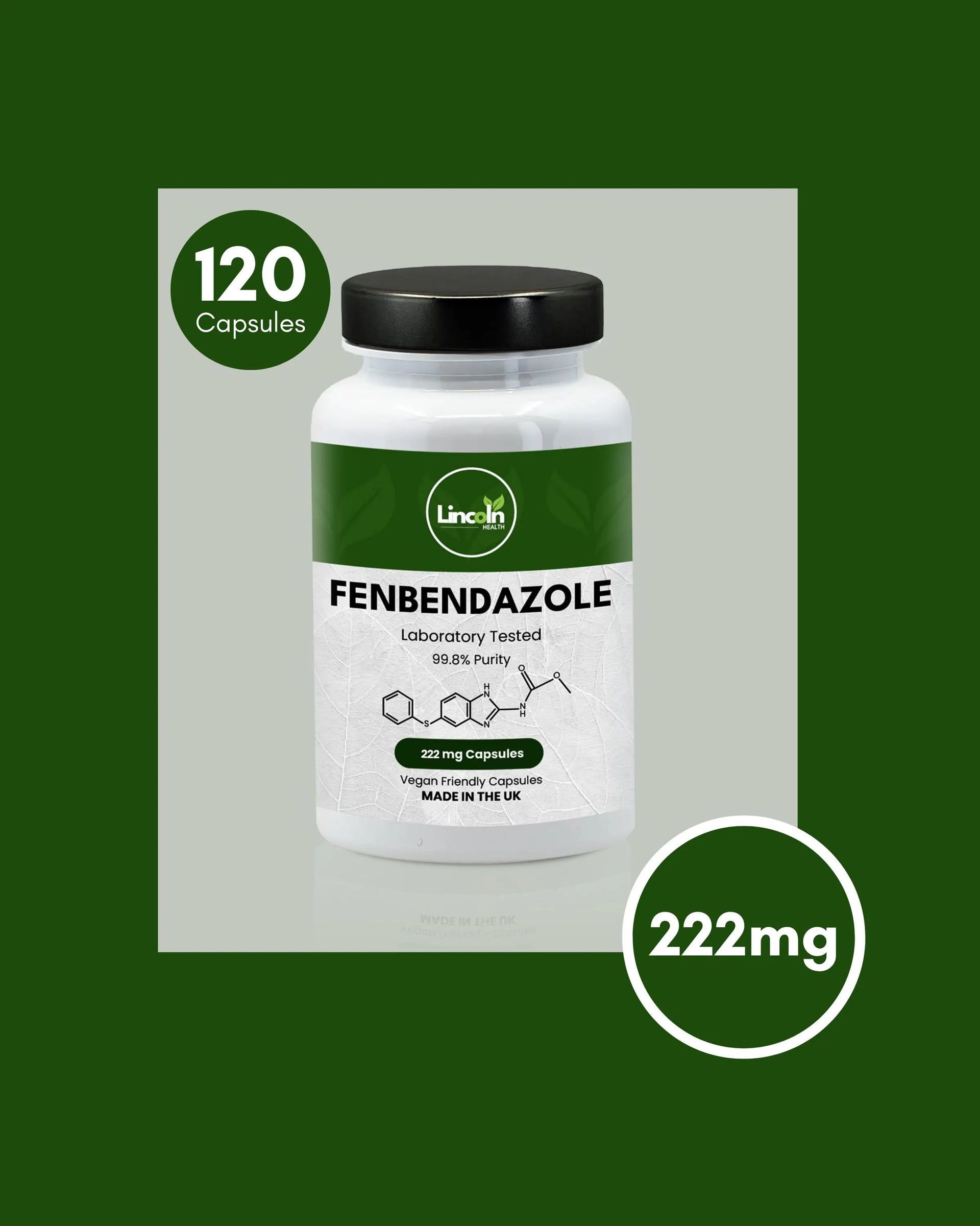Exploring the Mechanisms Behind Fenbendazole and Its Influence on Pet Wellness
Fenbendazole is a commonly utilized anthelmintic recognized for its performance against various parasites. Its primary mechanism involves the inhibition of microtubule development, which interferes with essential procedures in these microorganisms. Beyond its antiparasitic properties, fenbendazole also shows up to boost immune actions and has anti-inflammatory advantages. Recognizing these multifaceted effects can disclose brand-new applications for animal health. Nonetheless, inquiries remain regarding its full potential and security profile.
The Pharmacokinetics of Fenbendazole
The pharmacokinetics of fenbendazole, an extensively utilized anthelmintic in vet medication, includes the study of its absorption, circulation, metabolic rate, and excretion within pet systems. After administration, fenbendazole is rapidly absorbed from the stomach system, with peak plasma concentrations occurring within hours. Its distribution is influenced by elements such as tissue binding and lipid solubility, allowing it to pass through various cells efficiently. The medication undergoes considerable metabolic rate mainly in the liver, where it is converted into energetic and inactive metabolites. These metabolites contribute in the medicine's general efficacy and security account. Excretion takes place largely with feces, with a smaller sized percentage eliminated by means of urine. The half-life of fenbendazole varies among varieties, which impacts application routines. Comprehending these pharmacokinetic residential or commercial properties is vital for maximizing its restorative use and guaranteeing effective bloodsucker control in veterinary practices.
Systems of Action Versus Bloodsuckers
Fenbendazole applies its antiparasitic results largely via the inhibition of microtubule development in parasites. This interruption impacts their architectural integrity and cellular functions, bring about impaired power metabolic process. Consequently, the drug properly jeopardizes the survival and reproduction of numerous parasitical microorganisms.
Inhibition of Microtubule Formation
Inhibition of microtubule formation stands for an important mechanism where specific anthelmintic representatives, consisting of fenbendazole, exert their effects on bloodsuckers. Fenbendazole binds to tubulin, a protein that creates microtubules, interrupting the polymerization process necessary for microtubule assembly. This interruption hinders crucial cellular functions, including mitosis, intracellular transport, and architectural integrity. As microtubules play a critical role in preserving the shape and function of parasitic cells, their inhibition leads to cell cycle apprehension and eventual death of the bloodsucker. This mechanism is specifically efficient against nematodes, as their dependence on microtubules for movement and nutrient absorption makes them susceptible to fenbendazole. Consequently, the inhibition of microtubule formation is a vital facet of fenbendazole's therapeutic effectiveness in vet medicine.
Disturbance of Power Metabolic Process
Interrupting basal metabolism is one more vital mechanism through which fenbendazole targets parasitic microorganisms. This anthelmintic modifies the power manufacturing paths within bloodsuckers, primarily impacting their capacity to generate adenosine triphosphate (ATP) By hindering sugar uptake and interfering with mitochondrial feature, fenbendazole limitations the power sources vital for the survival and reproduction of these microorganisms. Because of this, parasites come to be significantly susceptible to environmental stresses and immune responses. The interference in power metabolic rate not just influences the bloodsuckers straight yet additionally minimizes their capability to assimilate nutrients, even more impairing their development - fenbendazole 222. On the whole, the disruption of basal metabolism stands for a basic facet of fenbendazole's effectiveness versus numerous parasitical infections, adding substantially to boosted animal health end results
Possible Side Effects and Security Account
The potential adverse effects and security profile of fenbendazole warrant mindful factor to consider, especially in veterinary applications. While usually considered as risk-free, some animals may experience adverse reactions, including stomach disturbances such as vomiting and looseness of the bowels. In addition, neurological signs, although uncommon, have actually been reported in sensitive people, highlighting the requirement for monitoring during therapy.

Fenbendazole's safety in different varieties, including pet dogs and cats, has been recorded, yet dose and period of therapy have to be thoroughly taken care of to decrease threats. Expectant or breast feeding animals might also call for unique focus, as the effects on creating unborn children or nursing children are not fully comprehended.
Regular veterinary examinations can help reduce prospective negative effects and assure the drug is administered appropriately. While fenbendazole is an efficient anthelmintic representative, vigilance regarding its side results is crucial for preserving pet wellness.
Fenbendazole's Influence on Immune Feature
Fenbendazole has been noted for its prospective to modulate immune system responses in click now animals. Its anti-inflammatory residential properties may contribute to improved immune feature, giving a double advantage in managing health (fenbendazole 444). Recognizing these results is necessary for reviewing fenbendazole's function in veterinary medication
Body Immune System Inflection

Anti-inflammatory Characteristics
Anti-inflammatory results stand for a considerable element of fenbendazole's influence on immune function. Research study indicates that fenbendazole might reduce the manufacturing of pro-inflammatory cytokines, which are pivotal in moderating inflammatory reactions. By modulating these cytokines, fenbendazole can potentially ease inflammation-related problems in pets. This anti-inflammatory action not only aids in taking care of symptoms connected with numerous illness but also improves general immune system efficiency. Additionally, its capability to advertise a balanced immune reaction assists prevent extreme inflammatory damage, which can result in persistent wellness issues. As a result, fenbendazole's duty in swelling management highlights its importance in vet medicine, offering a dual advantage of antiparasitic action and body immune system support for animal health.
Applications Beyond Standard Parasitic Infections
While largely acknowledged for its effectiveness against various parasitical infections, fenbendazole has actually garnered attention for possible applications past this standard scope. Current research studies recommend that fenbendazole might have advantageous effects on cellular health and wellness and immune response, making it a fascinating prospect for managing various other health problems in animals. As an example, its reported anti-inflammatory properties might supply alleviation for pets experiencing chronic inflammatory diseases. Furthermore, some study indicates that fenbendazole could play a role in supporting the total health of pets by improving vitamins and mineral absorption and gastrointestinal health. Additionally, its prospective as an adjunct treatment in cancer cells therapy has sparked rate of interest, as initial findings recommend it could inhibit growth cell development in certain contexts. These diverse applications highlight fenbendazole's versatility, motivating more expedition into its multifaceted advantages for animal wellness past its traditional use as a deworming representative.
Future Research Instructions and Ramifications for Pet Health And Wellness
The expedition of fenbendazole's potential applications has actually opened brand-new opportunities for study targeted at boosting animal health and wellness. Future studies might concentrate on its efficiency against a broader series of virus, consisting of bacteria and infections, therefore broadening its duty in vet medication. The effects of fenbendazole's devices, such as its my website effect on immune inflection, warrant further examination to recognize how it can boost total wellness in numerous varieties.
In addition, research may check out perfect does and formulations to optimize effectiveness while minimizing possible side results. Investigating fenbendazole's collaborating impacts with various other drugs can bring about a lot more effective treatment methods. Longitudinal research studies examining lasting results in pets treated with fenbendazole might supply important understandings right into its safety and performance. On the whole, the continued expedition of fenbendazole supplies encouraging capacity to boost animal wellness, requiring a joint approach amongst researchers, vets, and pharmaceutical designers to assist in improvements in this field.
Regularly Asked Concerns
Can Fenbendazole Be Utilized in Animals for Bloodsucker Avoidance?
The question of whether fenbendazole can be made use of in animals for bloodsucker avoidance matters, as producers seek effective treatments (222 mg). Study suggests it may give benefits, but correct standards and vet guidance are necessary for safe usage
What Is the Recommended Dosage of Fenbendazole for Different Pets?

Are There Any Known Medicine Interactions With Fenbendazole?
Present knowledge suggests that fenbendazole might interact with particular drugs, potentially impacting their efficacy or metabolic process. Veterinary specialists recommend speaking with a vet to analyze private animal cases and establish any type of possible communications before administration.
How Does Fenbendazole Compare to Other Antiparasitic Medicines?
Fenbendazole is typically compared to other antiparasitic drugs based on efficacy, range of activity, and safety accounts. It is favored for its efficiency against a vast array of parasites while usually exhibiting very little negative effects in pets.
Is Fenbendazole Effective Versus Viral or Bacterial Infections in Animals?
The effectiveness of fenbendazole versus viral or bacterial infections in animals stays unverified. Research study mainly focuses on its antiparasitic homes, with minimal proof sustaining any kind of duty in dealing with non-parasitic infections in veterinary medication.